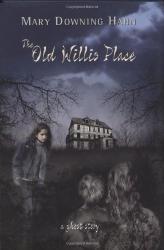
This ghost story revolves around a pair of siblings, the older sister named Diana and the younger brother named Georgie. The strange thing about these two is they don’t have any parents or legal guardian looking after them. It has always been Diana and Georgie on the Willis Farm. The two have a strict set of rules to follow which may lead to consequences if they break.
I really enjoyed this book. It was really an attention grabber and I was extremely interested in the plot because I haven’t read anything like it so far. Diana and her little brother Georgie are really complex characters and their relationship is interesting to follow throughout the entire book. This book is another ghost story from Mary Downing Hahn. If you have any free time, I recommend picking up the book and start reading!
Reviewer Grade: 8
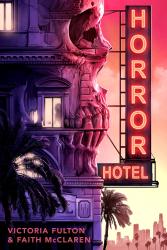
Have you ever read a book that’s so bad it’s good? Maybe even great? Even if you haven’t, there is room for one of these books in everyone’s lives. This book for me is Horror Hotel. Cringey, “Gen Z” dialogue? Horror Hotel has it. Badly written plot with an obvious twist? You can find that in Horror Hotel. One dimensional characters? You guessed it, Horror Hotel. Though, I will give this book credit where it’s due. I had found myself laughing harder than I’ve ever had at a book. It has the exact same energy of something you’d write with your friends at 3 AM. If you are looking for grade-A trash, you’ll definitely find it in Horror Hotel.

The book Max’s Story is a book within the ‘A Dog’s Purpose’ book series. This is a fiction novel about a small Yorkie-mix who needs to find his purpose in New York City. Living with family in an animal shelter, it becomes apparent that Max must find a new home. This novel was very heartwarming the first time I read it. A small dog with a huge heart is brought to life while reading the novel. I became overwhelmed with a sense of empathy wanting this dog to have the happy ending he deserves! Want to find out if it is a happily ever after? Read the book if you love heartwarming fictional stories!
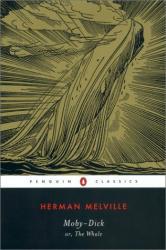
I, like most people, got wildly bored reading this book. Even then, it's one of my favorites. Moby Dick is a long and treacherous journey not for the faint of will, but lying at the end of the mud-covered path is a handsome bounty. For me, the ending of Moby Dick justified the means. Sprinkled throughout are interesting and bizarre chapters (and wise quotes on sleeping with drunken cannibals), but I believe the impact of the ending cannot be achieved without Moby Dick's arduous length. The hundreds of pages allow the reader to spend a massive amount of time with the characters (even if it's just Ishmael) and grow to appreciate the ship. Without that, the ending would fall miserably flat. So, despite the time it takes to read Moby Dick, the famous tale of a captain's monomania is one told beautifully.
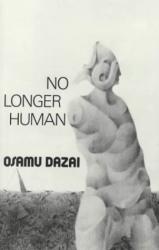
No Longer Human is a cultural phenomenon, widely known as the second most bestselling novel in the history of Japan. Within, Osamu Dazai explores the life of a man who feels that he has never been a part of humanity, and his desperate strivings to find a piece of happiness in a life full of terror and vice. The timeless, existential themes of the novel will haunt the reader past the last page.
I chose to read this book because I'd seen a lot of people all over the internet praise it as the saddest book they'd ever read. There are about a thousand videos and essays and think pieces about the depressing nature of this book, and how it can devastate and eviscerate emotionally. Weirdly enough, I don't see it. The book is definitely very sad, but to me it didn't extend very far beyond the other grimly written books about very sad people with very sad lives. However, the psychology of the protagonist definitely sets the book apart. Unlike other books of the same nature, this book cuts to the bone by showing the terrifying underbelly of humanity. The protagonist is paralyzed by fear because he comprehends what many of us forget: that we are at all times surrounded by our own apex predators. Each of us has our own deep desires that could stir us to violence at any given time. We lie and cheat and steal to get what we want, effortlessly wearing masks that can obscure our entire character and can last a lifetime. The protagonist isn't like other antiheroes of hardened books about the horribleness of humanity. He doesn't accept it, or rail against it. He is very much afraid of it, and does everything he can to get out of its way. The protagonist's perspective is also interesting in the way it views humanity. The detachment of the central character is clinical, and portrays the characters in an alien light. He is scared of humans, but he also doesn't understand them. He sees all hunger and desire as something strange, and he wonders how people can be so insincere so easily. But despite his abject horror of humanity, the protagonist is slowly transformed into everything he despises and cannot understand. Perhaps the most fascinating part of this tale is how the protagonist is dragged, slowly but steadily, into the grips of humanity's vices and horrors.
Despite the intriguing nature of the protagonist's psychology, I didn't find the rest of the book as interesting as I thought I would. I was likely just disappointed that after all the build up, this amounted to another very well done, very sad bildungsroman in the vein of Catcher in the Rye or Little Friends. There's also issues with the way the writer portrays women, but since everyone in the book is fairly dehumanized it doesn't bother me as much as I thought it would. All in all, No Longer Human is a fascinating journey through the most base natures of humanity, all through the eyes of a man who feels disqualified from being human. I'd recommend this to someone who wants something dark and strangely fascinating. I would not recommend this to anyone who is anywhere close to being in a bad place, or anyone who got annoyed by Holden in Catcher in the Rye. This guy is ten times worse.
Reviewer Grade: 12
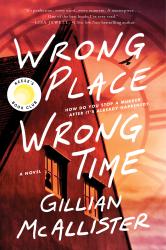
Jen is the forty-something mother of a seventeen year old son, Todd. She and her husband have raised him in a loving, happy home. Only one night, Jen witnesses Todd commit a horrendous crime and he ends up in police custody. When she wakes up the next morning, it isn't the next morning at all. It is yesterday. And the next day ends up being the day before that. Each day Jen is waking up in the past, and she believes it is an opportunity to change Todd's future. Somewhere in the past, Jen is determined to save her son from the events that unfold in the future. Listened to this one on audio, which was really well done and recommended.
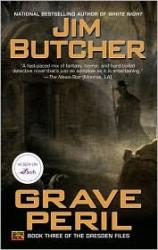
The third book in the Dresden Files, Grave Peril continues the adventures of Chicago’s resident wizard as he takes on ghosts, godmothers, and ghoulish vampires. While it’s definitely an improvement from Fool Moon, Grave Peril still has some of the misogynistic flaws of the series’ titular character. On the plus side, we finally get to delve into deeper lore for the series. And we get Michael. He’s the best new character in this series and by far my favorite for many reasons—mainly because how he does things differently than Dresden.
I’ll admit that it took me a while to get through this book, which felt odd considering the action was superb, the writing was proficient, and the story was thrilling. For some reason, I didn’t feel the motivation to continue reading and went weeks between picking it up and continuing. I think if I had read it all as quickly as possible, then it might have earned another half-star. I know it’s not this book’s fault for my inability to focus on reading to save my life (thanks to the pandemic; I think). Perhaps there’s something subconscious about this book that prevented me from devouring it, though.
Since the Dresden Files are mainly written through the POV of Harry Dresden, this might be my biggest qualm right now. I absolutely adore all the new characters introduced in this book, but I cringe at all the obvious instances of “men writing women” that have persisted since book one. In fact, I’d almost rather have an entire series from Michael’s point of view, because he seems much more interesting in his denim-wearing, sword-wielding ways. I’ll still continue with this series, but only to see where it takes Michael.
Great new characters and a deeper dive into the lore, I give Grave Peril 4.0 stars out of 5.
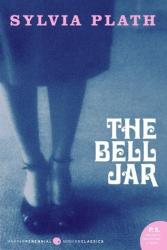
You will understand why she was so depressed and attempted suicide three times after reading this novel. It tells the tale of a young girl who suffers a lot throughout her entire life. All the events of her life are beautifully executed with the help of Easter's character in this novel. Sylvia wants to be a poet, but society forces her to be a housewife, have children, or someone else. Sylvia Plath's father dies when she most needs him. Being without a father means you are alone with creatures in this cruel world that does not care about anyone. She seems very lonely, and sometimes she feels like she is in a bell jar, like a dead baby. She is depressed by the silence. It is not the silence of silence, it is her own silence. The novel also depicts the situation of women in the 1940s they were supposed to do what their men wanted them to do. If the person is loyal, he should get the same person, but that is not the case with Slviya Plath. Every boy friend she finds has an affair with another woman. She sacrifices her body for the peace of mind and her virginity for the sake of experience.
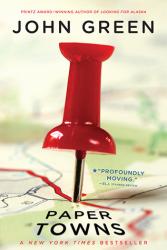
Paper Towns by John Green is a thrilling, coming-of-age mystery. Readers get to solve the mystery along with the main character. The book provides interesting insights and a sense of grounded wonder and sparks deep thought about our own reality of life and inevitable death. It follows senior Quentin Jacobsen on a wild journey with dreamy but unattainable childhood friend later drifted away, Margo Roth Spiegelman. The mystery that surrounds her the next day is sure to excite readers with fear but also curiosity as they journey with Quentin inside his mind on the sublime adventure to uncover her whereabouts. On many occasions I found myself unable to stop reading even though the book took me into the late hours of the night. I would definitely recommend this book for anyone looking for an exciting venture into the unknown!
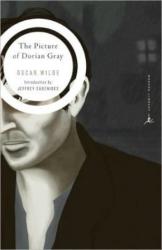
As a lover of writing, poetry, and pretentious philosophical tangents on the measurements of good art, I was bound to enjoy Wilde's only novel. The Picture of Dorian Gray is a beautiful tapestry of tragic corruption and its devastating effects. Albeit at times Lord Henry seems to ramble on about entirely uninteresting subjects, the overall experience of the book is short and sweet. The prose is flowery and elegant; the interactions between characters are brief but natural. Major character development occurs off-screen, which was disappointing, but within 160 pages one can only fit so much. Ultimately, I greatly enjoyed the ride, and The Picture of Dorian Gray has cemented itself as one of my favorites.
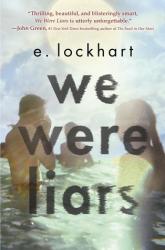
We Were Liars is a mysterious young adult novel about a wealthy family who spends every summer on their private island. The story focuses on the main character, Cadence. After Cadence suffers a head injury during one of the summers, she cannot remember almost anything from that trip to the island. The next summer things are very different and Cadence has to try and remember why.
This book is quite a page-turner. As Cadence slowly remembers more and more details of the mysterious summer when she suffered her head injury, it is nearly impossible to put the book down. However, not all page-turners are necessarily great books. The story of We Were Liars may have been intriguing, but the content was not very substantial. There didn’t really seem to be any morals, and if there were, they weren’t very clear. Things just happened throughout the story, and although it was a mystery, nothing was truly deep or thought-provoking
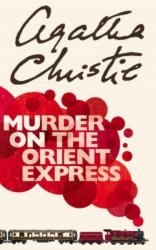
Murder on the Orient Express is a compelling Christie mystery. The book is steady and methodical: after the initial inciting incident, each of the passengers are questioned in order. Then, the evidence is reviewed and the conclusion comes easily to the detective. This novel was a straightforward, easy read, but I found it was better enjoyed by just sitting back and reading. Formulating theories, from the perspective of the reader, is relatively difficult due to key details being under developed when first introduced in the book. Therefore, the detective is better informed than the reader throughout the mystery, which took away some of the intrigue for me. Ultimately, however, the ending was satisfying, and Murder on the Orient Express is a well-written, captivating read.
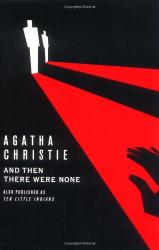
Any fan of mysteries should read And Then There Were None because it is such a wonderfully refreshing book. It is understandable why the book continues to have an impact decades after its release. Following And Then There Were None is not that difficult. Yes, it's a mystery, so pay attention (or at least keep track of who's passing and when), but the book doesn't aim to mislead its readers with unusual text. Guilt and justice are two of And Then There Were None's themes. Every visitor taken to the island is charged with an unfounded murder. As the death toll climbs, visitors struggle in various ways with their own personal emotions of guilt. Justice Wargrave's confession clarifies the notion of justice. Those who loved And There Were None like me should read more of Agatha Christie's work or if you want to read a book similar to And Then There Were None I recommend The Guest List by Lucy Foley. Overall, I loved Agatha Christie's novel And Then There Were None because of how it always kept readers on the edge.
Grade: 8th
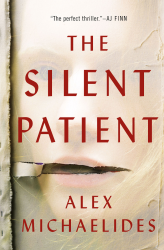
Initially, the premise of this book caught my attention: a psychotherapist sees a patient who murdered her husband years ago (as revealed in the opening line) and has not spoken since. Without spoilers, the story is told in a fascinating way, and Michaelides makes the most of his creative freedom in the medium of novels. Right after I finished reading, I thought the book perfect for what it sought out to do; however, upon further reflection, I feel it missed the spark that makes a good book. Yes, the story was interesting and the flow of events was steady, but by the last third I felt there wasn't enough struggle or buildup to make the progress with Alicia impressive. The novel told two stories simultaneously (the one of Theo's wife and the one of his patient), which was a great artistic choice, but I think that left each individual plotline underdeveloped in the 300 page novel. The Silent Patient is well-written, organized, and unsettling. Although I struggle to grasp the greater message behind the nuanced story Michaelides told, I definitely enjoyed reading it.
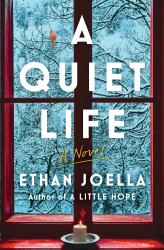
A Quiet Life by Ethan Joella is an emotional, heartwarming story about human connection. Joella’s story tackles grief and loss, all the while remaining light-hearted and hopeful. A Quiet Life takes on the perspective of three different people, all struggling with their own hardships and trials. Chuck, an elderly man mourning the death of his wife, must decide whether or not he should venture back to their vacation home for their yearly trip. The pain is too much to bear, and imagining himself being there alone is heart wrenching. Ella, a single mother working a newspaper job, is trying desperately to find her missing daughter. Kirsten works at an animal rescue and tries her best to serve the community. However, after the quick and tragic murder of her father at a convenience store, Kirsten can hardly find the light in life again. A Quiet Life shows the intricacies and hardships that come with loss, all the while connecting every missing piece, and showing us how togetherness is what keeps us afloat.
(Reviewer Grade: 12)
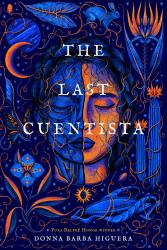
Donna Barba Higuera takes on a futuristic dystopian space adventure in her story The Last Cuentista. A young, curious girl named Petra lives in a distant timeline on Earth, where scientists are helplessly searching for a way to avoid certain doom. While in the face of death, Preta leans on her abuelita’s stories, which are rich and full of life. Yet, as the clock starts ticking and Petra is forced to leave it all behind, the one thing she keeps with her is the power of tales. The Last Cuentista is a brilliantly written novel depicting a world in space, where the connection and true heart of human-kind is severed. Petra shows the reader what true perseverance is, and reminds us all of what it means to truly be human.
(Reviewer Grade: 12)
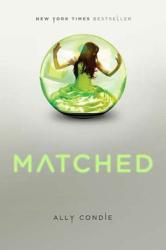
This is a wonderful, amazing, trilling book! I love the descriptive language and the way its laid out, you never want to stop reading it. it makes you want more. if you read this book, which you should, you need to read the other books as well. It’s a thought-provoking, engaging dystopian novel with the stereotypical love triangle at the center. Condie does a good job setting the scene and the overall vibe. However, I was very disappointed when Cassia burned her grandfather's poems. If she doesn't have the courage to keep a piece of paper, that has been in her family for generations, how will she have the strength to do anything? This is a great book, the characters are developed well and the story is intriguing. (Spoiler) The only thing I would change is Xander at the end, where he lets Cassia go. I know that he is understanding and all, but I think it would be more appropriate for him to want Cassia to stay with him forever, and ever since the pill incident with Ky, he'd like to follow the rules. I really like the storyline and the fact that Cassia is different and doesn’t fit into what people expect of her. Also, I think she used too much show not tell as I don’t see why Cassia likes Ky or how on earth Xander would be a perfect match. I feel like she left the important bits out and kept what wasn’t interesting Other than the few complaints I have, Matched is a book that I would recommend to any Romance or Dystopian fans.
Reviewer's Grade: 8
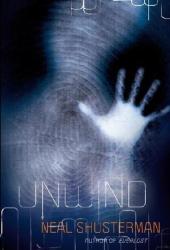
Unwind has a fresh, fascinating, and frankly genius premise: after a war is fought on abortion, the U.S. government passes legislature allowing parents to sign an order to "unwind" their teenagers. The teen is then taken apart, and each body part is used for transplants. Like any good dystopia, the concept poses a number of thought-provoking questions that the book tries to address, like "do we have souls?" or "what makes a person themself?" or "how scary is it to be unwound, really?", and it answers them with varying degrees of success. Unwind is an excellent conversation starter; it is riddled with nuanced philosophical ideas which are, at times, uniquely terrifying. However, that's where the problems with Unwind lie: the intrigue doesn't stretch much farther than the initial concepts. Shusterman is talented at worldbuilding, and every new detail of Unwind's dystopia is interesting, inspired, absurd, and simultaneously realistic. Unfortunately, the story fails to make use of this inherent intrigue. Much of the reader's time is spent spectating characters as they shuttle from one location to another. They have minimal development, or, when they do have development, it is sudden and drastic. Shusterman builds a vivid universe only to guide readers through the dullest corners. Unwind is worth a read for the conversation, not the story. If a reader expects the average teenage dystopia, they should pick another book; but if they want fresh perspectives, creative horror, and possibly a hint of existential dread, Unwind is the perfect read.
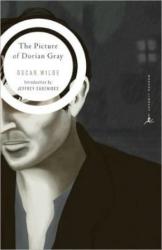
At first, I only picked this book as a classic for school, but I quickly learned it's a classic for a reason. I'd known of the general plot of the novel where a portrait reveals the ugliness of the inside of a man while he remains young, but the way it's written and described makes the full story. The story starts with painter Basil basically putting so much work and devotion into a portrait of Dorian Gray, the painting comes to life. Dorian wishes to stay forever young, and the painting reflects his evilness (vanity, etc.). I enjoyed the sense of mysticism and how everything connects to the theme of appearances are not what they seem. Dorian looks beautiful, but his actions (the thing that makes a person) are grotesque and horrid. The gothic fiction genre is reflected by the dark evilness of Dorian's actions and the magic of the portrait. This book is my favorite class I read this year and the plot surprised me with the characters always returning and a sense of incompletedness when characters leave. If you're looking for a medium-read classic with thought-provoking ideas, then this is for you!
Reviewer Grade 12
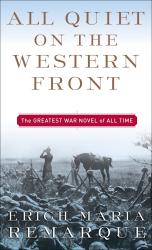
All Quiet on the Western Front by Erich Maria Remarque can solely be described as an ingenious masterpiece. The book, a historical fiction novel, was written in 1928 about German soldiers' experiences during World War I; Remarque used his experiences as a german soldier to accurately portray the terror of war. The main characters, Paul Bäumer, Albert Kropp, Franz Müller, and Ludwig Behm, are remarkably realistic and, throughout the book, go through changes caused by the nature of war, essentially turned into humans run by animal instincts. Throughout the book, Remarque ripes away any possible notion of romantic ideas relating to war and perfectly encapsulates the true terror of war. Overall, I wholeheartedly believe that everyone should read this masterpiece.


